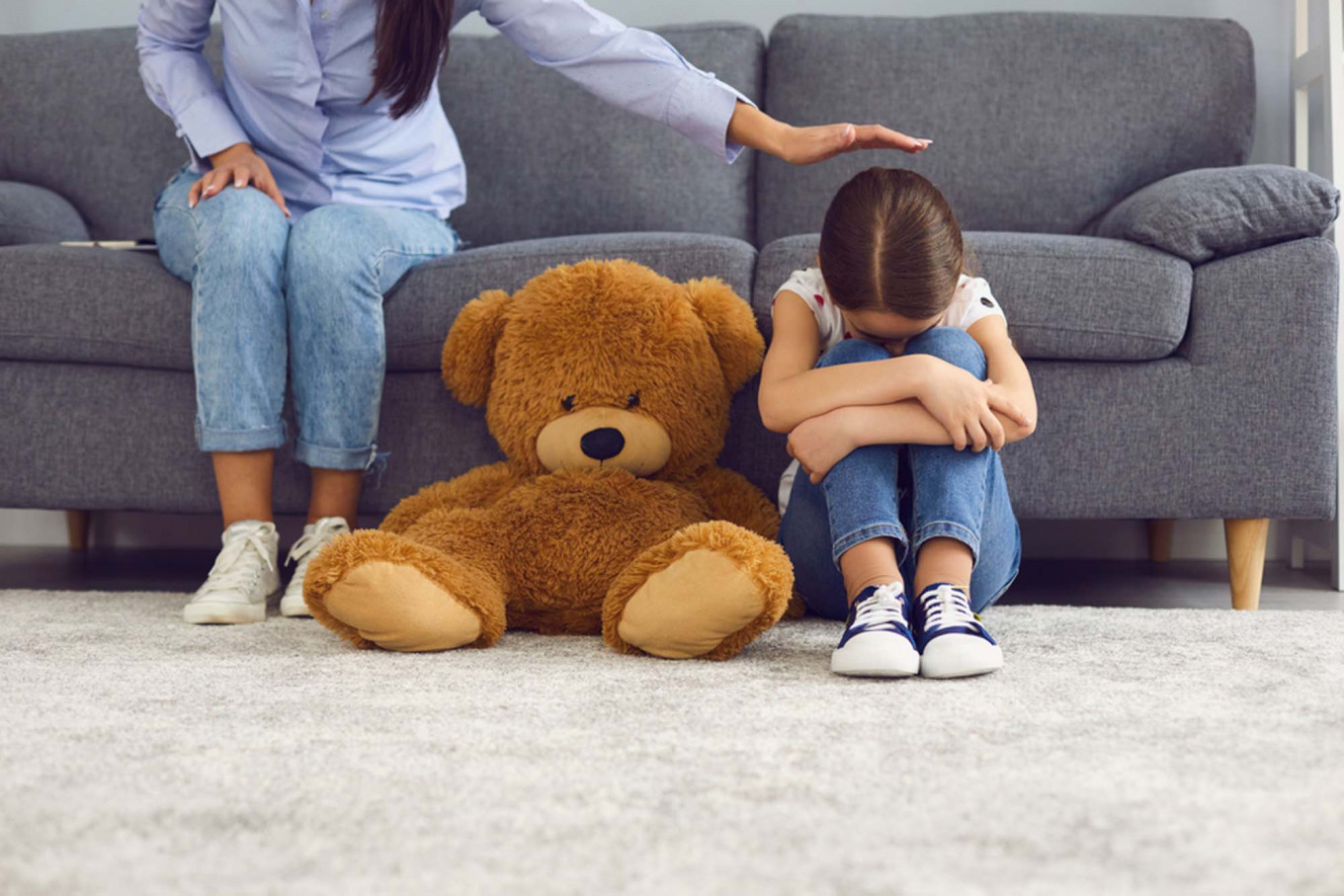Popular Reads
Top Results
Can't find what you're looking for?
View all search resultsPopular Reads
Top Results
Can't find what you're looking for?
View all search resultsCalming emotionally agitated children amid COVID-19 quarantine
Change text size
Gift Premium Articles
to Anyone
The COVID-19 pandemic can be especially distressing among young children.
“Having to adapt to these new circumstances, with the online studying system and deprivation of playtime outside the house, can be tough for young children. Parents who are also stressed out juggling various work-from-home and domestic work demands might not be emotionally available or sensitive for their children’s needs all the time,” children’s clinical psychologist Kantiana Taslim, who works for psychological consultancy company Personal Growth, told The Jakarta Post over the phone.
“Because of this, some children can become extra-cranky; or lose interest in things which previously brought them joy. Some children have no idea what to do to occupy their time any longer due to the tedium of prolonged quarantine. Some children have become more emotionally dependent and clingy to their parents as they’ve not been able to enjoy social interactions with their playmates,” she explained.
F.S. Putri Cantika, a 34-year-old working mom living with her eight-year-old son Arka in Bogor, West Java, said that since Arka had started to attend online classes in March 2020 and lost his playdates with his schoolmates due to the quarantine, he had become more demanding of Putri’s time to play with him.
Putri said communication gaps often happened between the mother and son due to their significant age gap and spending longer time together than usual.
“Arka wasn’t used to be around adults for too long. Maybe if he spent too much time interacting with an adult like me, he would grow up to be a stiffly serious adult person?” she wondered.
At the same time, Putri also needs to take care of her coffee business. Juggling responsibilities exhaust her. “I am afraid that I will lose my patience with him,” she told the Post.
Galis Remina Babay, a 32-year-old mother who works as a freelance journalist in Bekasi, West Java, said previously her two-year-old daughter Manjali was a very active child who liked to walk in the fields near where they lived, running to and fro with fellow neighborhood children. Needless to say, the three-month quarantine has frustrated Manjali.
“Previously, I was an idealistic mother who refused to expose my children to digital gadgets; since the pandemic, I’ve been busier than ever with domestic works, while working on my freelance journalism assignments at the same time, I ran out of ideas how to amuse Manjali, so I allowed her some screentime,” she said.
Kantiana advised that parents created a new routine structure around their children’s lives in order to help smoothen their adjustment into the distressing times of the COVID-19; they could do this by devising a clear-cut time table that their children should follow every day to instill a semblance of normalcy among them amid an abnormal time.
Galis did this to soothe Manjali’s emotional agitations. For instance, at 4:30 p.m. every day, she would take Manjali on a walk around the housing complex, while observing physical distancing and face masks, of course. Putri, meanwhile, schedules regular arts and literature activities with her son, passing on her skills as a singer, craftswoman and writer to Arka.
“Parents also need to be compassionate of themselves, to lower their expectations and let go of perfectionism because, in tough times like COVID-19, it is impossible for them to always take the perfect actions to soothe their children’s emotional agitation; parents don’t need to beat themselves up too much for perceived shortcomings in handling their children amid the pandemic,” Kantiana advised.
Speaking of special early childhood cases here, Kantiana said that children aged two to three were also prone to throwing more temper tantrums as they were overwhelmed by all the dramatic shifts brought by the coronavirus crisis.
“Children around these ages haven’t developed enough verbal communications skills to express their emotions; their ability to control their emotions is also still at its infancy,” Kantiana said.
Enter Galis and little Manjali again: she said her daughter, who previously could communicate her needs politely with her limited vocabularies, has been throwing more tantrums since she started quarantining in March 2020.
“Usually, she would say to me ‘I want milk’. Nowadays, she will pull my skirt while screaming and pointing at the milk bottle on the table,” Galis said.
She added Manjali’s tantrums were usually triggered by spending too much screentime, which exhausted the young child’s brain.
Kantiana said when children threw temper tantrums, it was important for parents not to be emotionally reactive and panicked in response. “If you are reactive or panicked, your children will soon learn that he or she can get whatever he or she wants by throwing tantrums, thereby perpetuating the behavior,” she added.
She advised parents to just remain calm and wait until the children stopped throwing tantrums, before approaching the children to soothe them and validate their emotions, all the while correcting their manner of expressing their emotions. This will help children learn to regulate their emotions properly.
Galis said her experiences writing parenting articles for a women’s lifestyle magazine, including one on temper tantrums, prior to having her baby proved useful in calming Manjali down, citing an incident when her daughter was throwing tantrums because she was thirsty.
“I will not give her what she wants until she calms down and I will hug her, then say: ‘if you communicate that way to me, I won’t understand what you need. If you want to drink, you know where to get the water bottle’,” she said.










